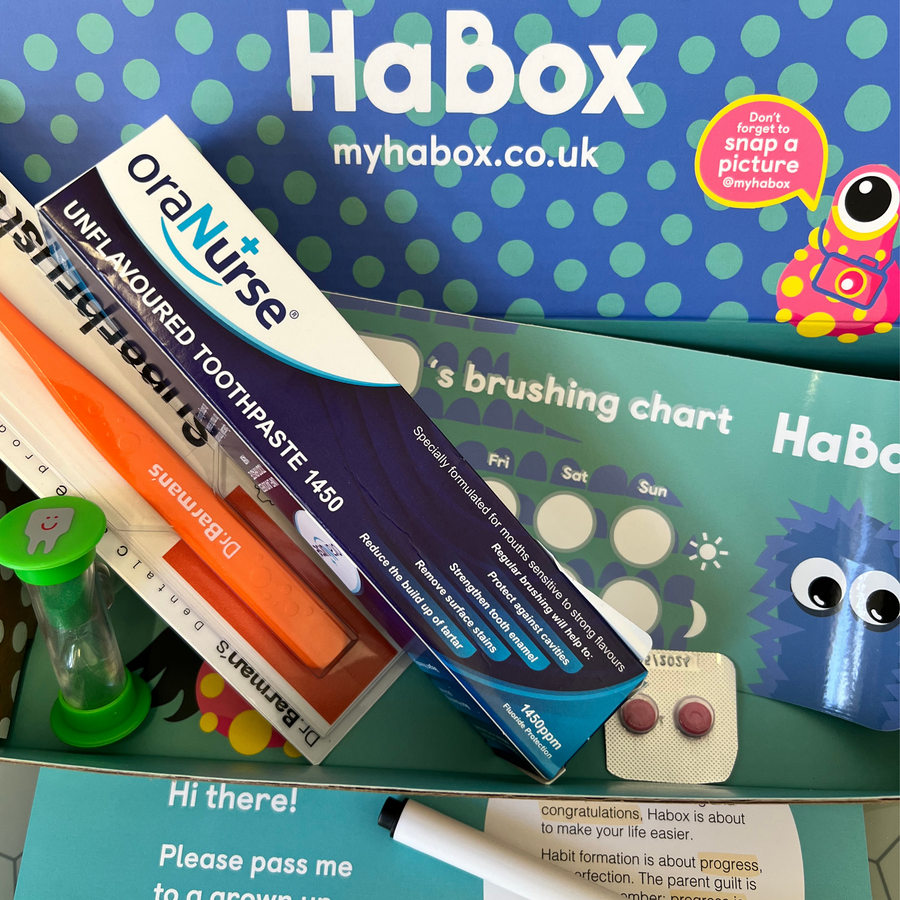Autism & Dental Care

Introduction.
For most parents it’s hard to look after your children’s teeth. There are additional challenges for children with autism. Having your teeth brushed and visiting the dental practice can be challenging for many patients, old & young. For children with autism, these activities can really challenge the senses, so we’ve outlined some ways you can try and make these activities more pleasant for you and your child.
Dental decay & autism
Luckily, current research suggests a child with autism is no more susceptible to tooth decay than any other child. However, some medications may increase the chances of dental decay.
If your child is taking medications
✔️this can result in them having a dry mouth, this does increase the chance of dental decay, so keep water on hand to help keep your child hydrated.
✔️ask your doctor for sugar free preparations of any medications your child is taking.
Dental Check ups
Babies & small children almost never let the dentist look in their mouths at the first (or even the second, third, & fourth) checkup, so don't worry too much. These first appointments are to support you, and give you the opportunity to ask questions about your child’s dental health & routines.
✔️Find a dentist that is patient and can understand the additional challenges you and your child face. If you find that your dentist is unable to support you and your child in the right way you can ask to be referred to the community dental service where you can be treated by a Specialist in Paediatric Dentistry.
✔️At your first check up, let the team know before you arrive that your child has autism, and let them know anything specific about your child's sensory requirements that can help them deliver the best care for you.
✔️Try to arrange a non clinical appointment, where your child will get the chance to say hello first.
✔️If you are a patient at the practice, it can help to take photos and create a storyboard for your child to see what they can expect.
✔️Ask for a visit when the practice is quieter, usually at the end of the day.
✔️Take anything with you that will help settle your child.
✔️Ask if there is a particular dentist who has an interest or experience in caring for children with autism.
✔️Take their brush with you to the appointment, if you are already brushing their teeth they may open their mouth when a brush comes towards them.
✔️If you have questions, prepare them before you go.
✔️If you can, take your child to your dental appointments before they are ready for theirs, this will start the process of getting them used to the environment and the staff!
✔️Be consistent. I see children every 3 months, so that they get used to me quickly. This allows me to be able to do a really thorough dental check up when they are still very young!
✔️Don't feel pressure to sit in the dental chair with them. Often I see children sat on their parents laps in the spare chair in the corner!
✔️Practice 'open' wide at home a week before, mirror this so they can see & learn.
Brushing
All children need help with brushing until they are 7 years as they don’t have the precise hand skills to clean effectively. Autistic children may need help for longer.
✔️Introducing brushing young will help your child get used to these sensations.
✔️Brush before breakfast and before bed.
✔️Use a Fluoride toothpaste.
✔️If the flavour and taste of toothpaste is too much, try a flavourless toothpaste such as Oral Nurse.
✔️I love the Dr Barmans toothbrush, as it is 3 sided, meaning you can brush effectively in a shorter amount of time.
✔️Try the two toothbrush technique, give them one with no toothpaste on, and you use the other one to brush.
Diet
Treating your children to sweet treats is (we are not ashamed to say) really lovely!
Thankfully, at HaBox we don’t have to tell you that sugar is always bad and you can never treat your children to sweet treats like chocolate and sweets.
Sugar is much safer for teeth if it is eaten only at meal times. When hunger strikes between meals, choose safe snacks*.
Most foods that are marketed as snacks for children actually cause holes in teeth if eaten as a snack! Some snacks seem healthy such as raisins, fruit winders and fruit shoots but many contain as much sugar as a packet of haribo!
This is why, The Habox Team has come up with a list of safe snacks. These foods can be eaten at any time of the day, and your teeth will be safe!
✔️Eat sugary foods and drinks with a meal.
✔️If hungry between meals, choose safe snacks.
✔️Drink water. It’s magic.
✔️*Safe snacks
Fresh Fruit
Fresh Vegetables
Plain Oatcakes, crackers and breadsticks (these need to be plain, not sweet and don’t add any sweet jams or spreads)
Cheese
Nuts
Toothache
Children with autism can find it hard expressing pain. Monitor any changes in behaviour such as disturbed sleep, unexplained emotional outbursts or changes in eating. If you are concerned, seek advice from your dentist.
References
